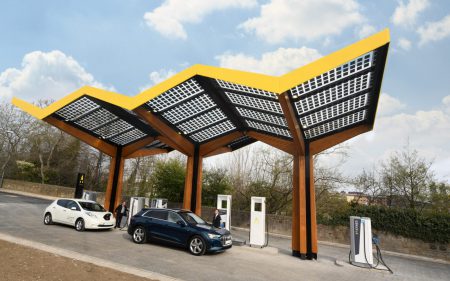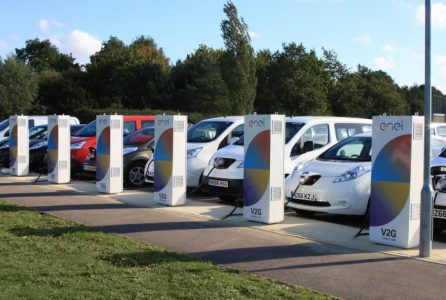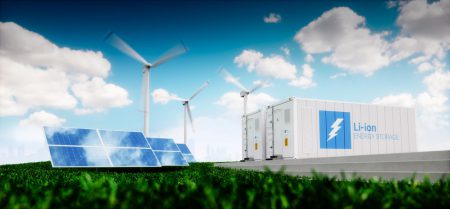Climate change is already doing a lot of damage – and the prohibition on the sale of new fossil-fuel cars is 15 years away.
Banning dealers from selling anything but zero-emission cars from 2035, as California Gov. Gavin Newsom decreed this week, sounds pretty radical on first hearing.
Electric vehicles are still a relatively niche pursuit. Charging them up isn’t always straightforward – especially if you live in an apartment – and battery-powered cars tend to cost more than gasoline-powered equivalents (although that won’t be the case for much longer). Predictably, the Trump administration attacked Newsom’s executive order, and the fossil fuel industry is also unhappy.
However, in view of the seriousness of the climate emergency – something Californians need only look out the window to observe – Newsom isn’t being very radical at all.
The truly eye-catching thing about California’s announcement is that the state will allow the sale of gasoline and diesel vehicles, whose emissions contribute to wildfires and heat, for another 15 years. Oil-rich Norway, by contrast, wants to ban cars powered by fossil fuels by as soon as 2025. Britain might bring forward its phase-out date from 2035 to 2030.
Speed is of the essence because climate change is already doing enormous damage. And the key question isn’t when we stop selling combustion-engine vehicles, but when the last one is removed from the roads. Think about it: A gasoline vehicle purchased in 2034, a year before California’s ban comes into force, might continue spewing carbon dioxide into the atmosphere for more than a decade after that. Californians will still be able to buy used gas-guzzlers after 2035.
To see why this matters, consider some of the findings of BloombergNEF’s latest Electric Vehicle Outlook. In 2020, about 3 percent of global car sales will be electric models. By 2025, that will hit 10 percent, rising to 28 percent in 2030 and 58 percent in 2040. Despite this incredible growth, these vehicles will amount to only 8 percent of the 1.4 billion cars on the planet’s roads in 2030 and slightly less than a third in 2040.

OPINION Posted September 26INCREASE FONT SIZEResize Font
Commentary: Why California’s ban on gas-powered cars isn’t all that radical
Climate change is already doing a lot of damage – and the prohibition on the sale of new fossil-fuel cars is 15 years away.
BY CHRIS BRYANTBLOOMBERG OPINION
Sharefacebooktweetredditemailprint2 COMMENTS
Banning dealers from selling anything but zero-emission cars from 2035, as California Gov. Gavin Newsom decreed this week, sounds pretty radical on first hearing.
Electric vehicles are still a relatively niche pursuit. Charging them up isn’t always straightforward – especially if you live in an apartment – and battery-powered cars tend to cost more than gasoline-powered equivalents (although that won’t be the case for much longer). Predictably, the Trump administration attacked Newsom’s executive order, and the fossil fuel industry is also unhappy.
ABOUT THE AUTHOR
Chris Bryant is a Bloomberg Opinion columnist covering industrial companies.
However, in view of the seriousness of the climate emergency – something Californians need only look out the window to observe – Newsom isn’t being very radical at all.
The truly eye-catching thing about California’s announcement is that the state will allow the sale of gasoline and diesel vehicles, whose emissions contribute to wildfires and heat, for another 15 years.
Oil-rich Norway, by contrast, wants to ban cars powered by fossil fuels by as soon as 2025. Britain might bring forward its phase-out date from 2035 to 2030.
Speed is of the essence because climate change is already doing enormous damage. And the key question isn’t when we stop selling combustion-engine vehicles, but when the last one is removed from the roads. Think about it: A gasoline vehicle purchased in 2034, a year before California’s ban comes into force, might continue spewing carbon dioxide into the atmosphere for more than a decade after that. Californians will still be able to buy used gas-guzzlers after 2035.
To see why this matters, consider some of the findings of BloombergNEF’s latest Electric Vehicle Outlook. In 2020, about 3 percent of global car sales will be electric models. By 2025, that will hit 10 percent, rising to 28 percent in 2030 and 58 percent in 2040. Despite this incredible growth, these vehicles will amount to only 8 percent of the 1.4 billion cars on the planet’s roads in 2030 and slightly less than a third in 2040.
Advertisement
BNEF forecasts that – after dipping this year because of COVID-related mobility restrictions – emissions from road transportation will keep rising until 2033. While they’ll decline after that, these emissions will still be higher in 2040 than they were in 2019.
Read more: Press Herald
It’s Time to Go Green!
If you would like to know more about Solar Panels and the PowerBanx range of home battery systems, and get a free instant quote, please complete our online form:
















